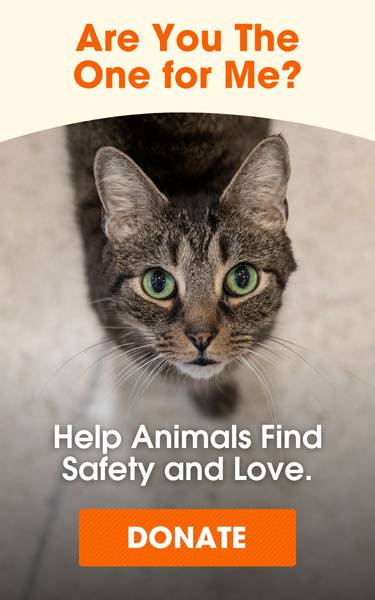
Meow Town: ASPCA Kitten Nursery Celebrates 10th Anniversary

Since opening New York City’s first and largest high-volume Kitten Nursery in 2014, the ASPCA has provided lifesaving support to more than 11,000 kittens.
This 10-year milestone comes during the height of kitten season, the time of year when shelters nationwide are overwhelmed with a surge of vulnerable and newborn cats, many too young to survive on their own.
The ASPCA Kitten Nursery, dedicated to the care and treatment of neonatal kittens, opened to support Animal Care Centers of New York City (ACC), the city’s only open-admission shelters and where thousands of kittens admitted to the Nursery originate. Kittens are also brought to the Nursery by members of the public throughout the five boroughs.
In addition to New York City, we have cared for close to 12,000 kittens through our Los Angeles Kitten Foster Program, launched in 2016, which supports Los Angeles County Animal Care Centers.
Then and Now
The Nursery’s very first patient was Adam, a kitten with Snowshoe-like features who was transferred from ACC’s Brooklyn shelter on August 14, 2014, at four weeks of age. A month later, Adam was adopted by Dianne L. of the Bronx. Known today as “Rocky,” he lives with three feline housemates: females Snooky and Bella, and Piggy, another male.

“He’s the sweetest cat,” says Dianne, a tech professional who also cares for strays in her neighborhood. “I’ve always been an animal lover, and cats are wonderful. Rocky’s had a good life so far, and we look forward to many more years together.”

Fast forward to 2024, when the first bottle baby of the season was Banjo, an orange tabby who arrived on April 10 from ACC’s Brooklyn shelter. Banjo weighed just 215 grams and was placed with an experienced foster caregiver, Andrea Zee, who bottle-fed him every five hours and cared for him until he was neutered on May 23. He was adopted on Memorial Day weekend.
Life-Saving Resources
At some point during their stay, an estimated 60% of kittens are diagnosed with upper respiratory infections due to their vulnerable nature, which can escalate to pneumonia if not treated early on, according to Dr. Allison Bliss, Veterinary Staff and Program Manager of the Nursery.

Tiny kittens often don’t survive without support, such as with a Puppywarmer® incubator and oxygen concentrator. The apparatus delivers a higher percentage of oxygen to the lungs in patients who cannot oxygenate well on their own and has an infrared heater that keeps them warm. We acquired it several years ago to treat animals like Oscar, one of the Puppywarmer’s first occupants. Oscar’s adoptive family says he “loves to gently chew fingers and looks either extremely silly or incredibly handsome. He’s our little buddy.” Oscar now has an adopted brother, a kitten named Kyo.

Because caring for newborn cats is time-consuming and resource-intensive, and vulnerable kittens need round-the-clock attention, the Nursery has grown its foster program to support the youngest kittens who require bottle-feeding every three to five hours, as well as kittens with ringworm and other special medical needs, with the help of dedicated fosters.

“In the beginning, we housed the majority of kittens on-site, and now the majority are in foster care,” says Gemma Smith, Administrative Manager of the Nursery. “At the height of kitten season, that can mean 150 to 200 kittens are in individual homes where they benefit from socialization and individual attention.”

“It’s wonderful to work with staff and fosters who go the distance time and time again to save as many of these kittens as possible,” says Meike Oliver, Senior Manager of the Kitten Nursery. “Their work not only saves lives but frees up space at ACC so they can care for other animals.”
Touching Testimonials
Staff and volunteers who work with kittens share fond memories.
“Shelter animals are unique as a group,” says Michelle Landau, a long-time volunteer. “The ASPCA works hard to identify their unique needs and teach volunteers how best to support the population.”
Nancy Edwards, a foster caregiver, recalls socializing kittens with ringworm, a contagious fungal infection that can be spread to other animals and humans. The Nursery provides fosters with training and appropriate cleaning and protective supplies.
“They were so stinky but desperate for cuddles and playtime,” Nancy says.

Julie Coleman, an ASPCA volunteer and Nursery staff member, recalls being asked to work the overnight shift for two days in her role as Kitten Care Coordinator.
“I was honored that management trusted me with such an important shift,” says Julie.
“We learned a lot during our first season,” says Ruth Allen, Director of Admissions and Placement who was involved in the creation of the Nursery. “It set the stage for the next decade, and we look forward to many more years of success.”

Adopt a cat during Adopt a Shelter Cat Month and create space in the shelter for more animals to be rescued and transformed. To learn more about fostering kittens in New York City and to complete an online application, please visit ASPCA.org/FosterNYC.
